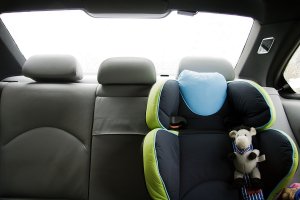
Vehicle collisions are a leading cause of preventable death among children in the U.S. There are steps you can take to safeguard your children, such as using appropriate car seats and using safe driving habits. Unfortunately, not all car accidents are preventable, given that you cannot control the behavior of other drivers on the road. If your family does become involved in an accident, you can schedule a visit to a car accident law firm in Baltimore. An accident attorney can demand justice on behalf of your family.
Use an Appropriate Car Seat
At a car accident law firm, one of the questions your attorney is likely to ask is whether your child was in an age-appropriate car seat at the time of the crash. According to the Centers for Disease Control and Prevention (CDC), when infants are placed securely in appropriate car seats, the risk of death in a collision drops by 71 percent. Children up to the age of two should be placed in a rear-facing car seat, while those from age two through five can use a front-facing car seat. Thereafter, children should be placed in a booster seat until they have grown enough to wear a seat belt properly. Remember to check the upper weight and height limits of all car seats and booster seats your children use.
Place Children in Appropriate Areas
Your accident attorney may also ask where your children were seated in the car at the time of the collision. If your children are 12 or younger, they should always be seated in the backseat. Placing young children in a seat with an airbag can increase the risk of death in the event of a crash. Additionally, your attorney at law in Glen Burnie is likely to recommend placing children in the middle of the back seat, since this is the safest spot in the car.
Require Seat Belt Use
Generally, children no longer require a booster seat when they are at least 57 inches tall and seat belts fit them properly. If the seat belt fits properly, the lap belt will lie across the upper thighs, rather than the stomach. The shoulder belt should extend along the chest, rather than the neck. Always check to make sure your children have buckled up before starting your engine.

